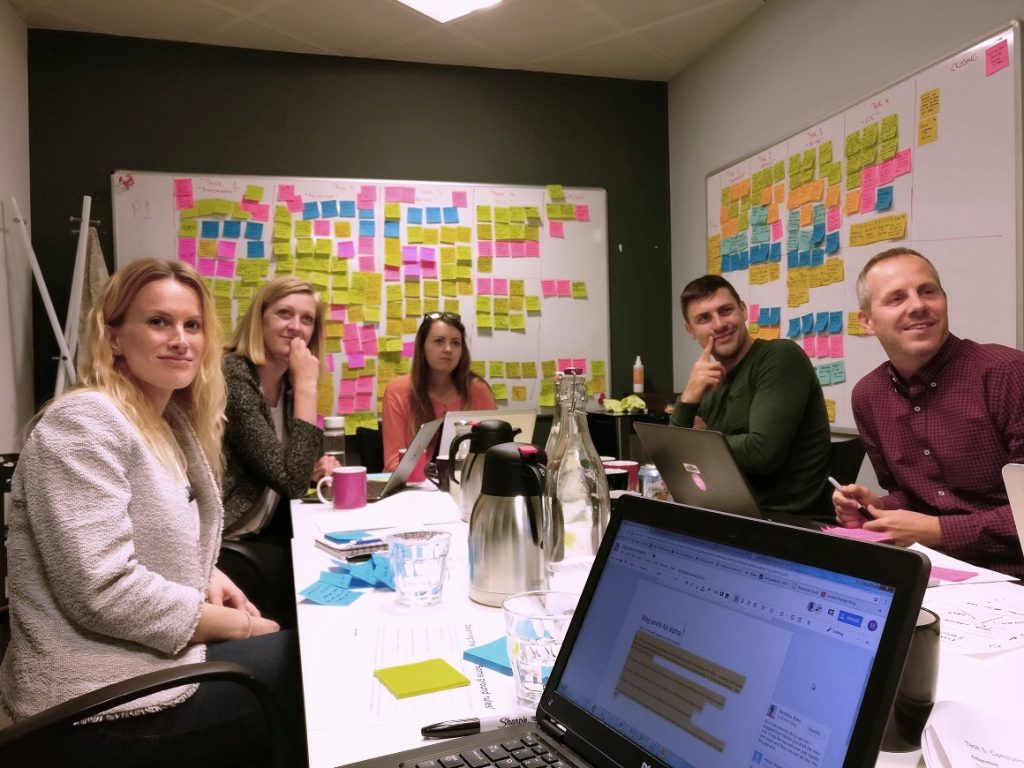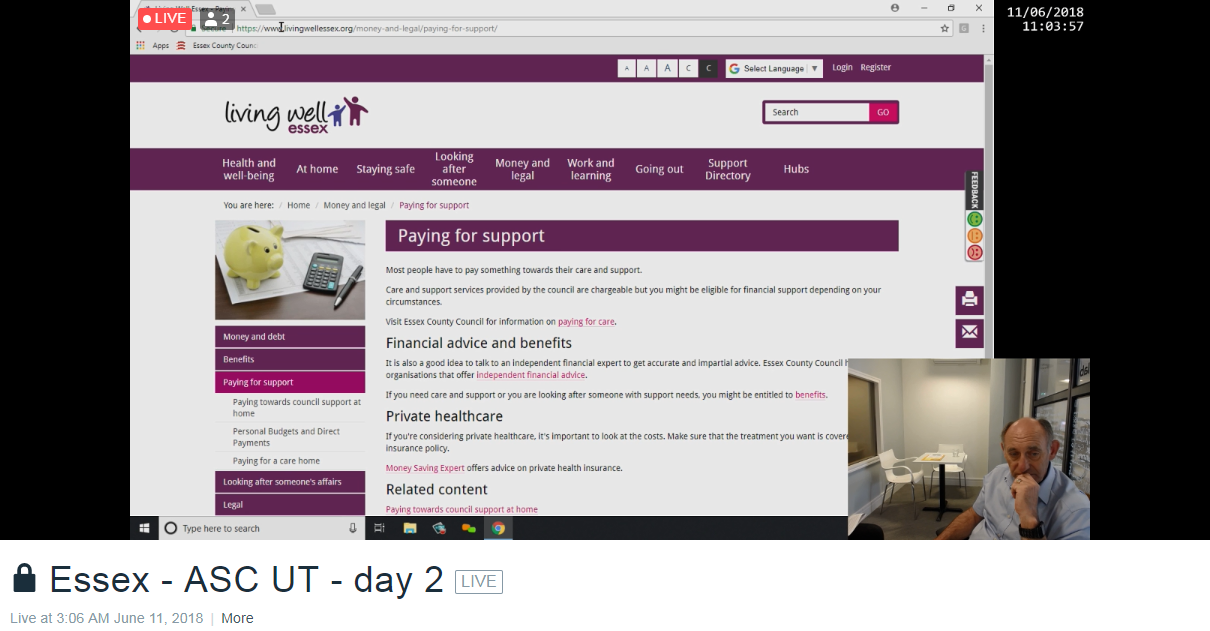This week, we're in the user testing lab, in an effort to better understand why our users act the way they do.
In the kick off for the essex.gov.uk project blog post back in April I talked about the problems that we were trying to solve by delivering a new website for Essex, the challenges that we faced and the next steps.
The main activity that we’re working on at the moment is creating a prototype. This is a really important step before moving to a live website and it means that we can:
- find problems early on and solve them quickly and cheaply
- make some estimates about how much a new website will cost
- identify the biggest risks to moving to a live site
It’s critical that before we deliver anything, we understand our users. It’s the first service standard and arguably the most important. At this point in time analytics have helped us to understand what our users are doing online, but to fully understand their experience we need to understand why they are doing what they’re doing.
Benefits of lab testing
In James Pallister’s last post We’re all user researchers now he talked about some of the challenges that we’ve faced with user research. While we’re working through those challenges we decided to engage the services of a user experience agency that could deliver a focussed piece of work using their usability lab facilities.
Lab testing is a great way to understand ‘the why’: including a user’s lived experience, goals and motivations. It also helps to see what they actually do when they’re online.

The lab is set up with a 2-way mirror so the participant and researcher can be having a great exploratory chat on one side while a whole team of people watch the experience without the participant being put off.
The main benefit of this is that the whole team gets first-hand experience and common observations can be captured. It’s better than 1-2-1 where you have to relay the experience to others.

The other key thing for us is the opportunity to improve our own knowledge and experience. This is the first time that the Service Design Team has taken part in this kind of testing and a couple of our colleagues from Research and Citizen Insight are also observing. The goal is to learn and bring this testing approach back to County Hall.
What are we testing?
We’ve selected a couple of journeys to test in the lab.
Recycling an item
This is a great journey to test as it potentially involves interacting with 3 separate websites. This complexity is common across our wider web estate so looking at the experience from the user perspective has broader relevance.
Paying for care
This is good because of all the work that we’ve been doing on re-designing Adult Social Care Content. It gives us an opportunity to test if our work needs further improvement and iteration. It also provides an opportunity to test an interactive tool for calculating how much you may have to pay towards your care. If this type of tool tests well then there are lots of other services that would benefit.
What prep have we done?
We met the research agency this week along with stakeholders for the 2 areas. They gathered some really useful insights about the services and we took part in an exercise to identify key lines of enquiry. As ever this involved a flurry of post-it notes.

Next steps
We’ve got 2 days booked in for usability testing including Service Design and Research team members and most important of all: users! Nicholas Ward will be blogging about our experience during the week
Leave a comment